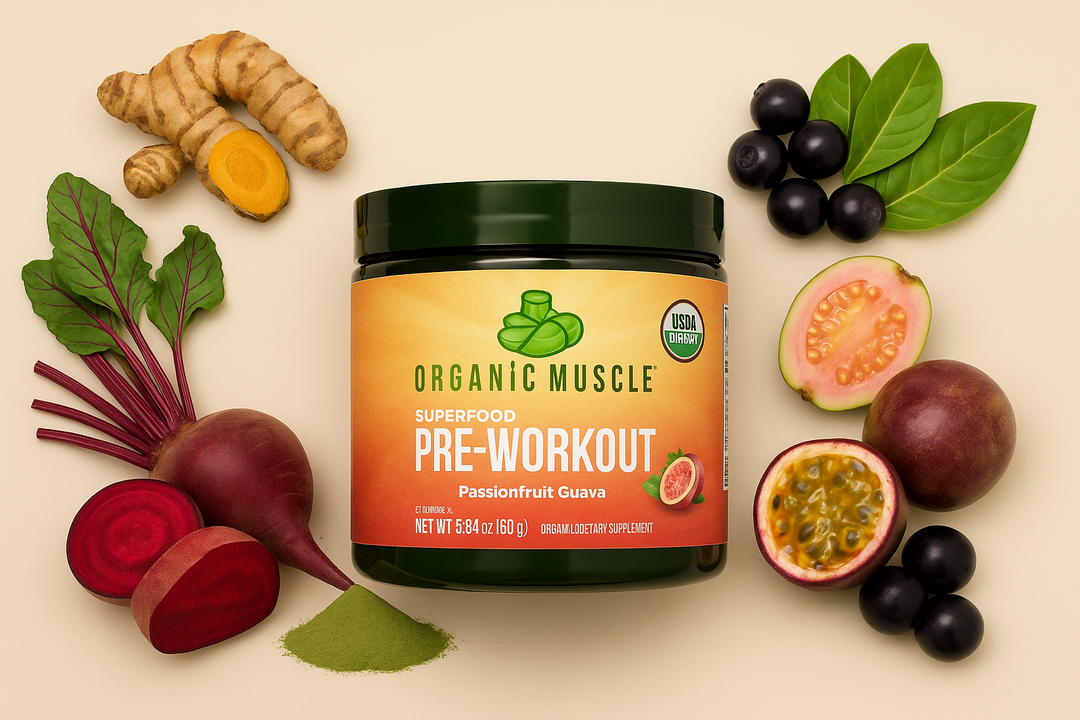One of the biggest concerns you will hear from people about being on a plant based diet is the amount of B12 you intake. This is due to the fact that the main source of this vitamin in most diets comes from meat and dairy products. Because of this, it is common belief that B12 can not be found in plants. Meaning that those who are practicing plant based diets like vegetarians and vegans are somewhat out of luck when it comes to intaking the vitamin. Luckily, research shows that mother nature provides us with quite a few plant based options for maintaining our B12 levels.
Vitamin B12 is a essential nutrient that helps make DNA, the genetic material in all cells, and helps keep the body's nerve and blood cells healthy. This vitamin also helps prevent a type of anemia called megaloblastic anemia, which makes people tired and weak. B12, like most vitamins, cannot be produced by the body and must be taken in the form of foods and supplements
The body undergoes a two-step process in order to absorb vitamin B12 from food. First, hydrochloric acid found in the stomach separates vitamin B12 from the protein to which the vitamin is attached in food. After this, vitamin B12combines with a protein made by the stomach called intrinsic factor and is absorbed by the body. This absorption doesn't work so well for some people though. Pernicious anemia is a condition in which the body cannot make intrinsic factor, resulting in trouble absorbing vitamin B12.
Because vitamin B12 is essential for maintaining healthy nerve and blood cells, and the role it plays in preventing tiredness and weakness through megaloblastic anemia, we made sure there is 54% of the "Daily Value" for adults in one serving of our Organic Superfood Greens. This is just one of the many vitamins and minerals found in this great tasting green drink mix, which was designed to help fill nutritional gaps in our diets. All done with the help from 14 organic superfoods provided by mother nature to sustain our bodies.
Now that you know a little bit about vitamin B12 and it's functions in the body, you may have some more unanswered questions. Like how much B12 is enough? What happens if you don't intake enough B12? What are B12's effects on health? What are natural plant based sources of B12?
Like all vitamins and nutrients, the amount of B12 you need will depend on your age and size. From birth to the age of 6 months old the recommended amount of B12 is 0.4 mcg, 0.5 mcg for infants 7-12 months old, 0.9 mcg for 1-3 years old, 1.2 mcg for 4-8 years old, 1.8 mcg for 9-13 years old, 2.4mcg for 14-18 years old and adults. However, it is recommended that pregnant women intake 2.6 mcg and breastfeeding women to intake 2.8 mcg. Our Organic Superfood Greenshas 1.3 mcg per serving, something that could help anyone reach their daily value of vitamin B12. If you consume excess amounts of B12, your body stores it in the liver, where it will save it for future use.
Deficiency in vitamin B12 is relatively common, some people do not consume enough B12 to meet their body's needs, while others can't absorb enough into their system. This results in deficient amounts of the vitamin in the body, especially among older people, which can cause quite a few problems. In fact, the National Health and Nutrition Examination Survey estimated that 3.2% of adults over age 50 have a seriously low B12 level, and up to 20% may have a borderline vitamin B12 deficiency. Signs and symptoms of this deficiency include pale or jaundiced skin, weakness and fatigue, sensations of pins and needles, changes to mobility in the elderly and even in young people, glossitis or an inflamed tongue and mouth ulcers, disturbed vision and optic nerve damage, as well as mood changes and brain disorders like depression and dementia.
It has long been taught that there are no plant sources of enough B12 to sustain your body, this is now know to be false. While many of the plants that contain B12 do not have sufficient amounts of the vitamin, there are edible algae that pack suitable amounts of B12. While various types of algae are consumed worldwide as a food source, dried green laver or Enteromorpha sp. and purple laver or Porphyra sp. are the most widely consumed types. These types of edible algae contain substantial amounts of vitamin B12with 63.6 mcg per 100 grams and 32.3 mcg per 100 grams of dry weight. The eukaryotic microalgae chlorella also contains biologically active B12. However, the B12 contents of chlorella tablets used to supplement B12 differ among various brands. These levels can range from zero to several hundred mcg of vitamin B12, so vegans and vegetarians consuming chlorella tablets for B12 should always read the nutrition label for accurate B12contents. Also, most plant based milks are now fortified with B12, which in combination with other fortified products like cereals can fill a big chunk of your daily B12 value.
So, please make sure you are getting enough B12 to sustain your body properly while practicing a plant based diet. This will prevent a deficiency that can cause all the problems mentioned and keep your body functioning properly by maintaining healthy nerve and blood cells and by making DNA, which is the genetic material in all cells. Make sure you are adding edible algae to your diet, as well as the fortified foods like plant milk and cereals. When supplementing make sure to read labels because B12 levels can vary and you want to make sure there isn't any harmful fillers, preservatives or use of pesticides involved.
One easy way to supplement a big part of your daily B12 is our Organic Superfood Greens. This way you know you are getting 1.3 mcg of plant sourced B12 per serving every time, without the use of harmful fillers, preservatives or pesticides. It is 100% Organic and contains 14 superfoods including edible algae like spirulina and chlorella.
















